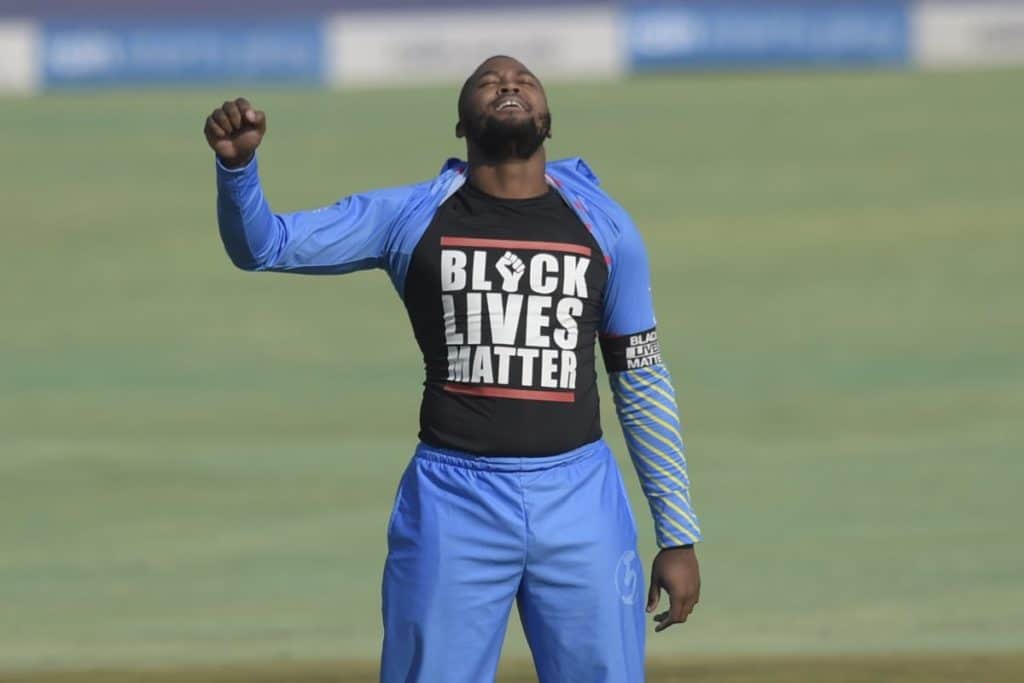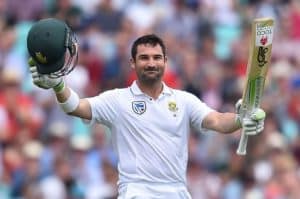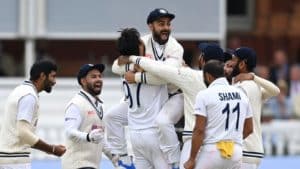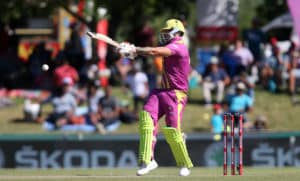The movement for racial equality is in the global spotlight but its impact must be felt at a local level too, writes SA Cricket magazine editor RYAN VREDE.
Full disclosure: I haven’t known what to say about anything related to this issue. I’m not smart enough to tackle this in any meaningful way. So I’ve not said anything, until now.
Instead, I’ve listened as an ever-growing list of black players, coaches and administrators have shared their experiences of overt racism, or incidences where it was more veiled and strategically subtle.
I’ve felt their pain deeply, not only because I can relate, but because their humanity is laid bare in their brokeness.
I’ve also tried to understand what causes former white players, and a disconcertingly large proportion of whites in the general public, to misconstrue what the Black Lives Matter movement seeks to achieve – equality – and for that to land in their minds as the pursuit of preference. It’s particularly hard to understand this because it is so reasonable, indeed so basic a demand.
Equality, it seems, is something to be earned by meeting a set of criteria laid out for you by the same people who denied you that basic human right.
These people want to commodify equality, as if it is something that can be owned by one group at the exclusion of another. For them, this equality can only be bought through subservience, expressed in a myriad ways they deem acceptable.
This gives rise to the finger wagging, fist clenching and cyber trolling that came in the wake of Ashwell Prince, Makhaya Ntini, Alviro Petersen, among others, telling their stories. These players refused to be captives of their pasts. A public lashing was the punishment for breaking a code of silence that is weighted completely in favour of those whose interests are protected by the silence.
What the enemies of change fail to acknowledge is that these conversations, as painful as they are, can be the catalyst for authentic, sustainable change.
And while all this plays out on the global stage, it’s important to remember that racism in its subtle and blatant forms affects cricket at all levels. This, I finally settled, was where my most meaningful contribution on this issue should live.
I speak with authority because I’ve seen it for the duration of my nearly two-decades long senior club cricket career.
Indeed, in the absence of meaningful consequences, the incidence of racism in club cricket are often far more unsophisticated, more vile and and more intentionally harmful to those affected than what happens in the pro ranks.
I play for Avendale, a club in the heart of the Cape Flats, and have done so for 33 years. It’s a club built on the values of racial diversity (we’ve had members from across multiple racial demographics), tolerance, equality and respect for oneself and opponents. It is a club with foundations of non-racialism and whose most well-known member is Bob Woolmer, an Englishman who made it part of his life’s mission to give to kids from the community and surrounds the gift of cricket.
I’ve missed him most during this time in our cricketing history. He was a champion for equality and a man for all men. He’d be devastated by the stories of hate I’m about to share.
Sometimes the racism has been as subtle as the opposition turning down the invitation to stay and socialise over a post-match drink (a longstanding tradition in cricket that we and most clubs honour when playing away irrespective of the result), citing time constraints. I’ve lost count of the number of times I’ve then seen social media pictures of them then having a cold one back at their clubhouse immediately afterwards.
Other times it’s been as obvious as an opposition captain declaring, ‘We know these teams don’t have the mental ability to cope with pressure.’ There was no ambiguity in the message. Everyone, including his black teammates, understood the intended meaning.
If this sounds like something from a dark part of our past, you’d be wrong. It happened in early March this year and came from the captain of a team representing an internationally-renowned university. This being a second-team game, there were no official umpires. Any report lodged with the Western Province Cricket Association (WPCA) would be thrown out on the basis of insufficient evidence, as similar cases have been.
There were times when players who came from the most desperate financial situations were ridiculed openly for wearing kit that was in tatters. In one such instance I was at the non-striker’s end listening to a white player in his mid-30s rip into a 16-year-old for wearing black sneakers while batting. The kid met me in the middle after the over and said, ‘Ryan, these are the only shoes I own.’ This time there were official umpires. I approached one and asked him to intervene. He shrugged and said, ‘It’s a man’s game.’
Another incident involved a former professional, who played at numerous franchises. He’d moved into coaching with a prominent white-dominant club. When shown to the away change room, he quipped ‘How does anyone play cricket here?’ Realising his privilege had spilled out of his mouth unintentionally, he attempted to play it off as a joke. His team lost badly and a week later he sent two water- bottle holders and a couple of bottles of Powerade concentrate to the club in, what I assume, was intended as an act of social upliftment. He never apologised.
There were countless incidents of blatant, unashamed racism when the umpires were out of range. If there were stump mics they’d melt under the heat of the hate.
I’ve played at a ground in Cape Town’s southern suburbs where the away team change room was bigger than any of our homes at the time. I’ve played at grounds where players showered for the first time that week because it was their only access to running water. I’ve played at grounds where I’ve seen kitchen staff blatantly ignore my teammates and serve whites who arrived after them. I’ve played in games where highly-accomplished professionals and men of incredible character were treated as subhuman by white men who’d failed to capitalise on the enormous head start apartheid gave them.
I’ve been one of those men.
In all these years I’ve not played in a team which has engaged in racism of any kind. It wouldn’t be tolerated. You’d be dealt with extremely harshly by your teammates and club executive. Your case probably wouldn’t even make it to the WPCA because your club-imposed ban would make any ban the governing body could impose look like a slap on the wrist.
My experience and my club’s experience are not unique. Players and officials from other black clubs have shared their horror stories with us. It would take me a full day to write a piece that details them all.
It hasn’t stopped and won’t until the offenders are convicted to change through a realisation that they’d been taught to hate and thus they can unlearn that conditioning. Judging by the vitriol spat at Prince and co, we’re nowhere near this.
Black cricket professionals have shared their stories, and that’s absolutely essential to the movement for racial equality. I hope more do.
But this cancer runs deep in the game. In the same way the likes of Graeme Smith and Faf du Plessis made it clear that there can be no neutrality on this matter – you either stand in solidarity with the fight for equality or you don’t – I hope that the vast majority of white club cricketers who don’t engage in this behaviour make their stand clear, especially when a teammate makes the conscious decision to denigrate a black cricketer – a black man, a human who happens to have more melanin.





